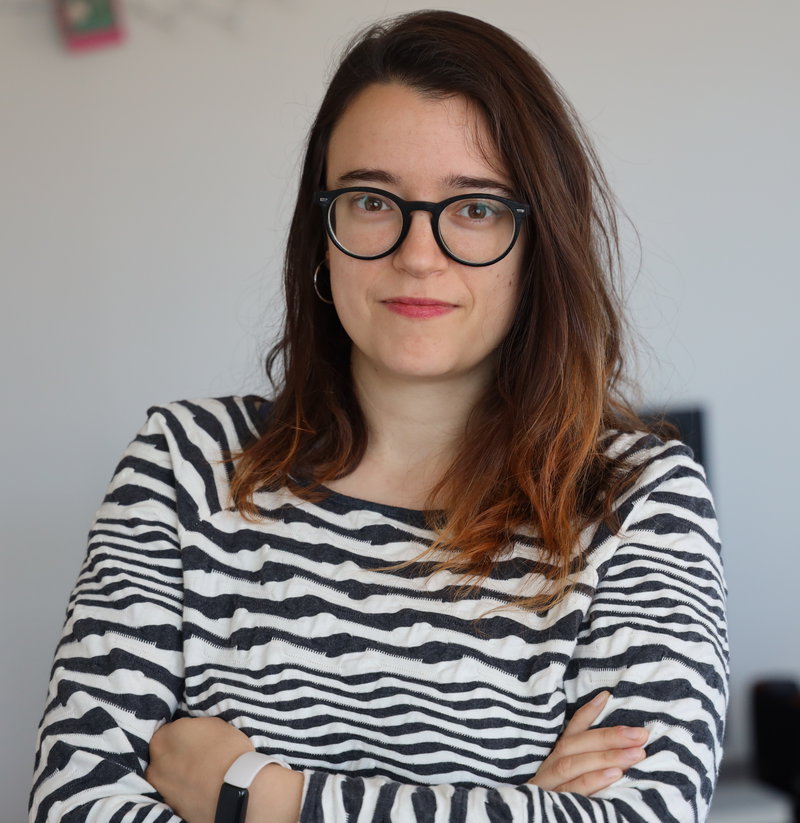MARIONA ESQUERDA
“Science is as vital to people as culture”
“Science is as vital to people as culture”
Mariona Esquerda Ciutat is a physicist (she holds a Master’s in Reservoir Geology and Geophysics, UB and UOC, 2014), a lecturer (holding a Master’s in teacher training, with a specialisation in natural sciences, UPF, 2015) and a science communicator. Also known as Maxwell’s Demon on Youtube, she makes informative physics videos and is a member of the platform Fried Neurons. She lives in Germany, where she has fulfilled her dream of combining science teaching and communication in the professional field by working as a science communicator at the Max Planck Institute in Dresden.
How did you get started with the channel Maxwell’s Demon?
It was before I moved to the US in 2017, when I had a lot of free time, and I got very involved in English-language physics channels, as there were no Spanish-language channels at the time. I started with Physics Girl, Veritasium, AsapScience - that’s where the idea for the drawings came from - and Minute Physics, all very good. I really liked the format of short release videos.
What kind of videos do you make?
Ones about physics concepts that catch my eye and I find are either little known and interesting for people to know them, or are amazing for some reason. I especially enjoy everyday physics. For example, the video about non-Newtonian fluids, materials we all have at home, such as toothpaste, shampoo or ketchup, and curious behaviours they display and perhaps go unnoticed.
You also do voluntary translations for the Science in School website.
I thought it was a good idea to help translate these articles to Catalan and Spanish. I found them by chance on Twitter. Whenever I have a little time I try to dedicate it to bringing science closer to people.
The language of all your science communication projects is Catalan.
Yes, if I can help Catalan have a greater presence in all areas, I will. If I’d wanted to start the channel professionally, I would’ve had to do it in English.
How did the Fried Neurons initiative come about?
The idea was to work with Catalan science communicators on social media and help to promote what we did individually. There are a lot of people who are doing a very good job, but we capture a spectrum of the audience that we think weren’t being reached.
What content do you share?
At first we thought we wouldn’t make our own content, but the Fried Neurons project has been so well received (23,000 followers) that we gave it a go and are very happy with the results. So far, apart from being active on social media, we’ve done some live shows on Twitch and appear on La primera pedra, a programme on RAC1, one Friday a month.
Why do you think it’s important for science to be a part of people’s lives?
Science is as important in people’s lives as culture. In fact, I don’t like the distinction:: culture should encompass science. Also, science gives you a way of thinking that is complementary to others, and much needed. Especially nowadays, with all the information we have at our disposal, with fake news everywhere. Because science is all about questioning, it gives you a tool to separate the wheat from the chaff, to think about sources and the quality of them when we hear someone talking.
interview new media

